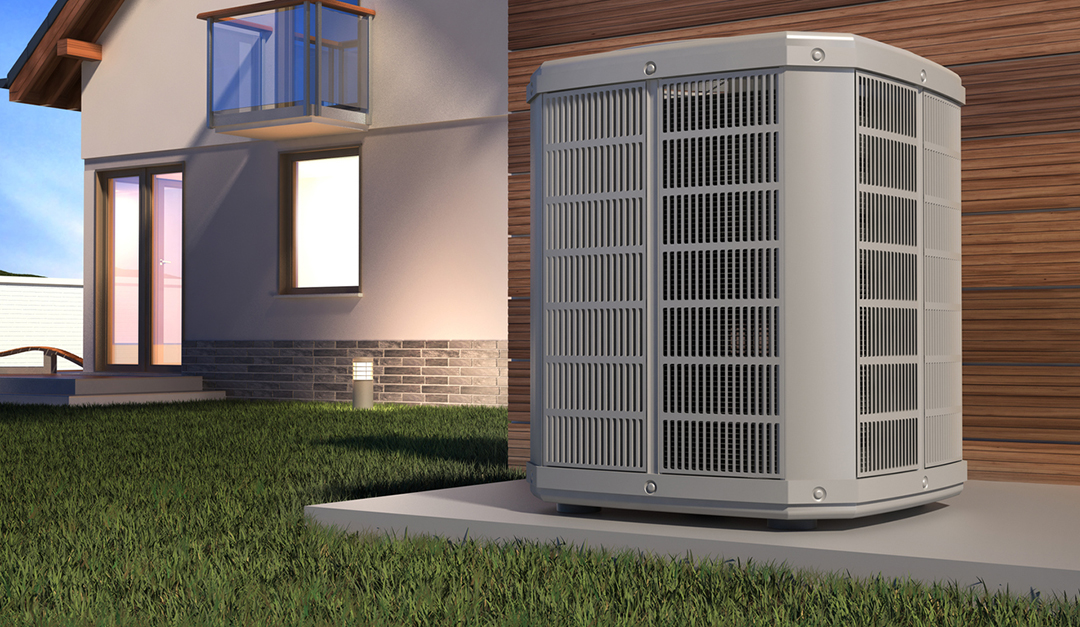(TNS)—Whether you want to reduce the greenhouse gases your home produces or lower the cost of your utilities, a heat pump might seem like a good idea. Here are some important factors to consider before you make a purchase.
It’s a Heater and an Air Conditioner
The most commonly installed are air-source heat pumps, which resemble air conditioner units that sit outside your house. During winter, a liquid refrigerant in a copper coil extracts heat from the atmosphere as warm air naturally moves toward the cold. The heat transforms the refrigerant into a cold gas and a compressor then pressurizes the gas, raising its temperature and heating the air inside the house. The reverse happens in hot months, when heat inside the house is absorbed and transferred outside. That’s increasingly useful in temperate areas of the U.S., where people typically don’t have air conditioners but are being hit with climate-change-fueled heat waves.
Know What Type of Heat Pump You Need
In the U.S., air-source heat pumps are especially well-suited to the Southeast and the West, where winters tend to be mild. Claire McKenna, a senior associate at the nonprofit Rocky Mountain Institute, says technology improvements now allow heat pumps to operate effectively even in cold climates. But in regions where temperatures routinely drop below zero degrees Celsius, they’ll need to be equipped with a heated coil to provide extra warmth on frigid days. That would consume more electricity. One alternative is a geothermal heat pump, which extracts heat from the Earth. Geothermal heat pumps cost $10,000 to $25,000—a lot of that is the expense of digging trenches for the necessary underground pipe system—but they can reduce energy costs by 70 percent. Regardless of the type, you’ll need to decide whether you want to use your home’s existing air ducts or install a so-called ductless system, in which heater units are placed in individual rooms. A heat pump will warm your house as well as a fossil fuel furnace, though its efficiency decreases in colder climates.
An Energy-Sipping Money Saver
Since heat pumps transfer heat from one place to another rather than generate it through the combustion of fossil fuels, they’re up to four times more efficient than a natural gas furnace, depending on the local climate, according to a Rocky Mountain Institute analysis. Equipment and installation costs typically run from $4,000 to $12,000 for an air-source heat pump, depending on the size of the pump, the brand and whether you use a ductless system. That compares with $2,000 to $6,000 for a gas furnace, but the U.S. Department of Energy estimates that a heat pump can lower a homeowner’s energy costs by hundreds of dollars a year. Meanwhile, a study published in October in the journal Nature Energy found that houses with heat pumps get a premium of as much as $17,000 on average when they sell. The environment also benefits: A 2018 paper published in the Electricity Journal found that air-source heat pumps could reduce household greenhouse gas emissions from heating in California by as much as 54 percent.
Do an Energy Audit First
The cost savings from a heat pump will go out the window if your windows and doors are leaky and your walls aren’t well insulated; the same goes for your ducts. Before installing a pump, hire an energy auditor to detect and plug leaks. The size of the pump depends on a home’s energy demand—you don’t want to spend more money on a bigger unit just to keep a drafty house warm.
Make Sure You’re Getting Your Tax Breaks and Rebates
The federal government offers a tax credit of up to $300 for Energy Star-rated air-source heat pumps, but it expires on Dec. 31, 2020. Qualifying geothermal heat pumps are eligible for a 26 percent tax credit if they’re installed before Jan. 1, 2021. The tax credit declines to 22 percent for systems that come online between Dec. 31, 2020, and Jan. 1, 2022. Some states also offer incentives for air-source heat pumps, such as a rebate of as much as $1,500 in Maine, 0 percent financing and rebates in Massachusetts, and a $1,000 rebate in New York.
Choose a Contractor Carefully
“The biggest barrier right now to adoption of heat pumps is contractor readiness,” McKenna says. “I hear time and time again from people who have talked to five contractors and only one is willing to install a heat pump. The lack of competition drives up costs.” Shop around and check to see if your utility or state rebate program lists recommended installers. Northeast Energy Efficiency Partnerships publishes a guide to choosing a contractor and the questions you should ask.
A Heat Pump Can Also Replace a Gas Water Heater
There are air-source heat pump water heaters. Another option is a device called a desuperheater, which can funnel excess energy from a geothermal system to a water tank. A 50-gallon heat pump water heater costs about $1,300, vs. $500 for a conventional water heater. Heat pump water heaters qualify for a $300 federal tax credit, and the U.S. Environmental Protection Agency estimates that a typical household will save $330 in annual energy costs. States and utilities also offer rebates for heat pump water heaters—California utility Pacific Gas & Electric Co. gives customers a $300 rebate. The state this year approved a $44.7 million program to promote the adoption of heat pump water heaters, which could reduce residential greenhouse gas emissions from heating water as much as 70 percent, according to the 2018 Electricity Journal study.
2020© Bloomberg News
Distributed by Tribune Content Agency, LLC











